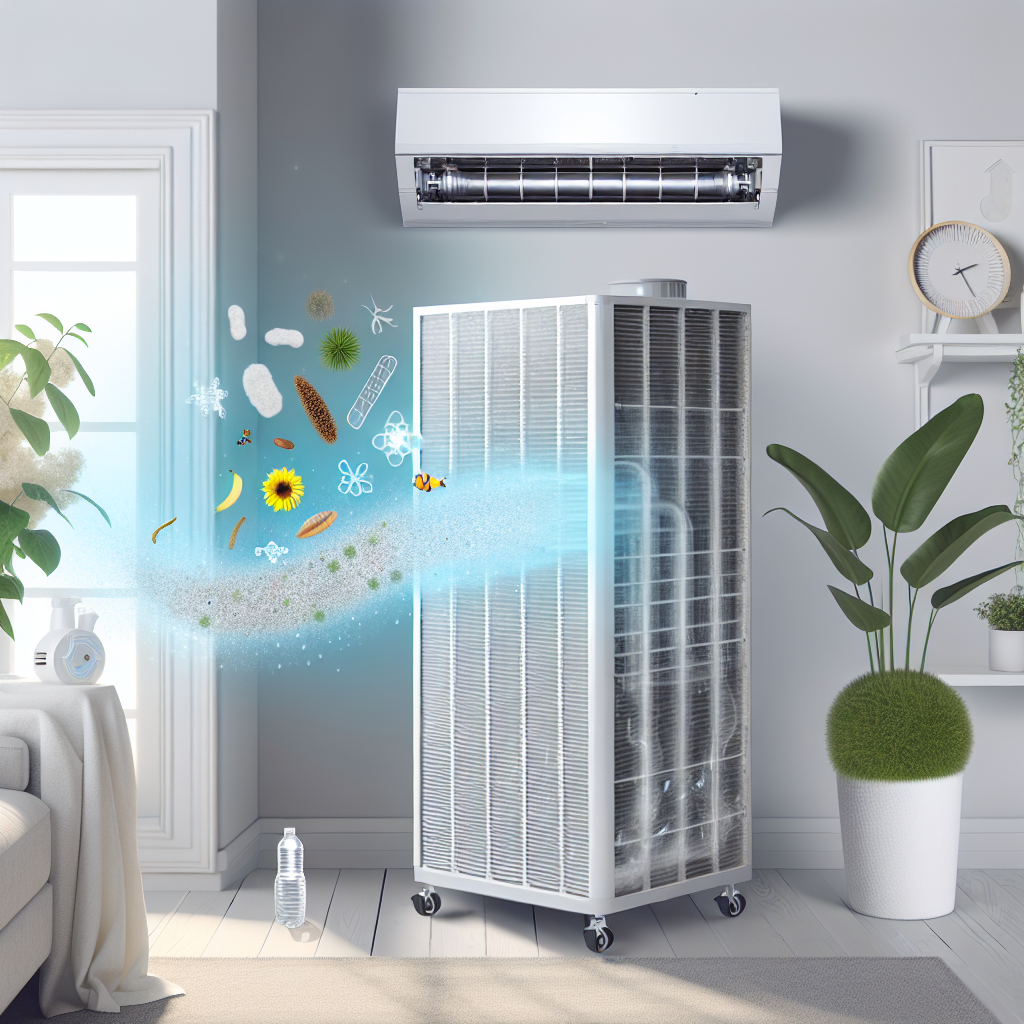Published: Jul 13, 2025

As allergy season approaches, many individuals begin to experience heightened symptoms due to poor indoor air quality. To combat this issue and create a healthier living environment, it is essential to take proactive steps to improve the air quality in your home. In this blog post, we will discuss various strategies and tips to help you enhance indoor air quality during allergy season.
One of the most effective ways to improve indoor air quality is by regularly cleaning or replacing your HVAC system's air filters. Over time, these filters can become clogged with dust, pollen, pet dander, and other allergens, leading to poor air circulation and increased allergy symptoms. By maintaining clean filters, you can ensure that the air in your home remains fresh and allergen-free.
Regular cleaning is crucial for reducing allergens in your home. Dust, vacuum, and mop frequently to remove dust, pet hair, and other particles that can worsen allergy symptoms. Pay extra attention to commonly overlooked areas such as ceiling fans, vents, and carpets to prevent the buildup of allergens.
Maintaining the right humidity levels in your home can significantly impact indoor air quality. Too much moisture can lead to mold growth, while dry air can exacerbate respiratory issues. Use a dehumidifier in damp areas and a humidifier in dry environments to keep humidity levels between 30-50%.
Proper ventilation is key to reducing indoor air pollutants. Open windows when weather permits to let fresh air circulate throughout your home. Additionally, consider installing exhaust fans in bathrooms and the kitchen to remove excess moisture and odors that can impact air quality.
An air purifier can be a valuable asset in improving indoor air quality, especially during allergy season. Look for a purifier with a HEPA filter that can capture allergens such as pollen, dust mites, and pet dander. Place the purifier in commonly used areas like bedrooms or the living room for optimal results.
To prevent allergens from entering your home, establish some simple habits like removing shoes before entering, keeping windows closed on high pollen days, and grooming pets regularly outside. These small changes can make a big difference in reducing indoor allergens.
Regular maintenance of your HVAC system is essential for ensuring efficient operation and good indoor air quality. Hire a professional HVAC technician to inspect and clean your system at least once a year. This will not only improve air quality but also extend the lifespan of your HVAC equipment.
Consider investing in an indoor air quality monitor to keep track of pollutant levels in your home. These devices can measure factors like humidity, temperature, and particulate matter, providing valuable insights to help you make informed decisions about improving air quality.
By implementing these strategies to improve indoor air quality during allergy season, you can create a healthier and more comfortable living environment for you and your family. Remember that small changes can lead to significant improvements in reducing allergens and promoting overall well-being.
**

Our expert technicians are ready to assist you 24/7!
Contact Us Today!Read our latest articles for helpful information about heating, cooling, and air quality.
Investing in energy-efficient HVAC systems like variable-speed air conditioners, heat pumps, and smart thermostats can...
Read MoreRegular HVAC maintenance is essential for improving energy efficiency, extending the lifespan of your system, enhancing...
Read MoreImplement these 10 tips to enhance the air quality in your home, promoting a healthier living environment for you and y...
Read MoreRegular seasonal HVAC maintenance is essential for maximizing system efficiency, ensuring indoor air quality, preventing...
Read More